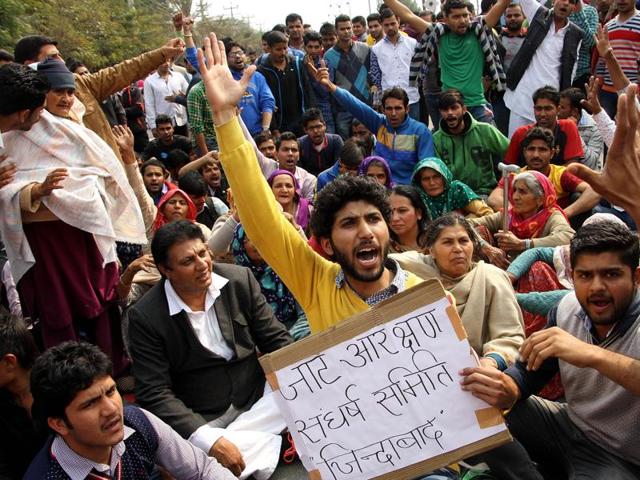Haryana OBC quota bill for Jats may hit a legal speed breaker
Given the fact that Congress too wanted Jats to be included in the OBC list, the decision may find legislative backing both in the state assembly and in Parliament for placing it in the Ninth Schedule. But clearing the judicial hurdles appears unlikely.
Haryana government’s decision to bring a bill to declare Jats and four other castes as backward classes (OBCs) may not withstand judicial scrutiny in view of the 50% ceiling on quota in government jobs imposed by the Supreme Court.

After an all-party meeting, chief minister Manohar Lal Khattar said: “The draft Bill would be framed after taking suggestions and consultation with Jat leaders and all leaders of all the political parties.”
But any such move would face many legal hurdles. The Supreme Court has already declared unconstitutional UPA government’s decision to treat Jats as a part of OBCs. Setting aside notification to include Jats in central list of OBCs, SC had in March 2015 said reservation shouldn’t be decided only on the basis of caste and that other marginalised sections such as LGBTs could be considered.
Even if placed in the Ninth Schedule of the Constitution that protects laws from judicial scrutiny, the Haryana government’s proposal to include Jats and four other castes in OBCs will be open to judicial scrutiny.
Article 368 gives power to the Parliament to amend the Constitution. But Article 13 of the Constitution restrains the State from making any law inconsistent with the fundamental rights.
Post independence, the restriction was coming in the way of the government enacting and enforcing land reforms laws as property was then a fundamental right.
Watch | Agitation over Jat quota continues in Haryana
Added to the Constitution by the First Amendment in 1951 along with Article 31-B, the Ninth Schedule gives a “protective umbrella” to laws, including land reforms laws, placed under it.
Article 31-B gives “fictional immunity” to laws enacted under it and placed in the Ninth Schedule even if such laws violated fundamental rights.
In January 2007, a nine-judge Constitution Bench upheld Parliament’s power to place a particular law in the Ninth Schedule but said such laws did not enjoy a blanket protection from judicial scrutiny.
Read | Jat agitation: Lack of influential leaders on ground did BJP in
The SC laid down a two-fold test to examine the validity of a law placed in the Ninth Schedule. First, it has to be examined whether the law in question violates any fundamental right or not.
And if yes, whether the violation also damages or destroys the basic structure of the Constitution. If the answer to both the questions is in the affirmative, then only a law placed in the Ninth Schedule can be declared unconstitutional.
Given the fact that Congress too wanted Jats to be included in the OBC list, the decision may find legislative backing both in the state assembly and in Parliament for placing it in the Ninth Schedule. But clearing the judicial hurdles appears unlikely.





